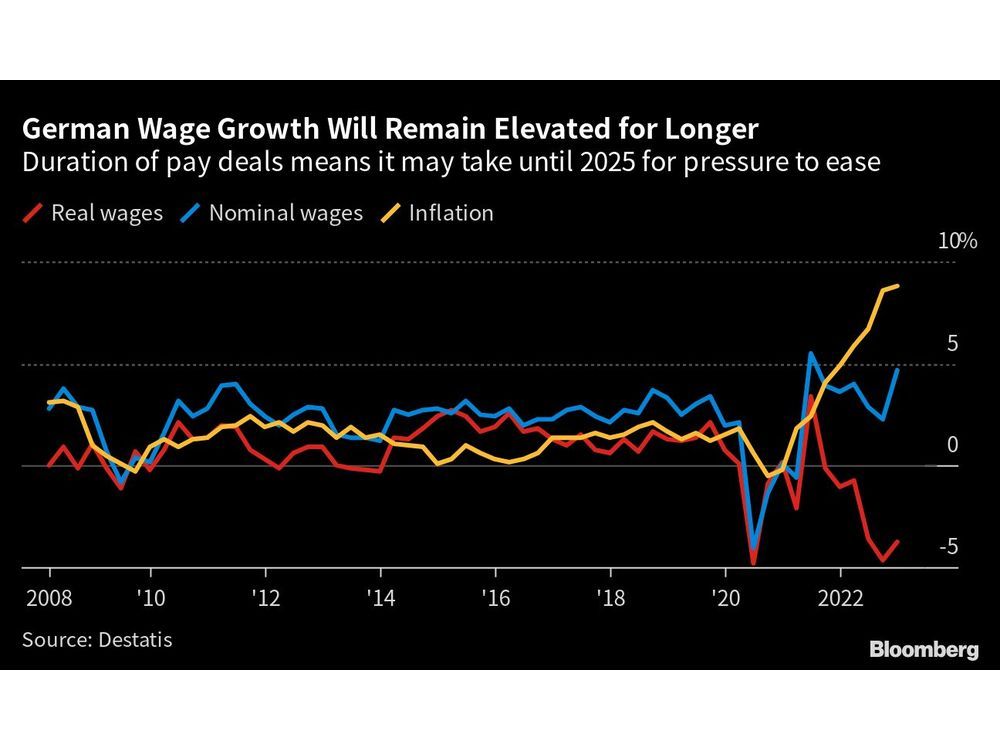
Article content
(Bloomberg) — German public-sector workers struck a wage deal with employers, capping a confrontational series of negotiations that saw repeated strikes in Europe’s largest economy.
Article content
Staff will receive staggered one-time payments totaling 3,000 euros ($3,300) through February 2024. After that, salaries will rise by 200 euros on a permanent basis, and then be increased by 5.5%.
Article content
The agreement covers about 2.5 million employees in the German public sector and comes after three rounds of talks failed to produce a result. An arbitration commission then proposed a compromise, which is the basis for the deal struck this weekend in Potsdam.
“We have wrestled hard with each other in four rounds of negotiations and in the arbitration process,” Germany’s Interior Minister Nancy Faeser said. “This wage settlement brings tangible relief for employees.”
Wages in the euro area have become a key focus for central bankers who are worried that strong increases will make it harder to return inflation to their 2% target. European Central Bank President Christine Lagarde has called on companies and their staff to share the burden of higher energy costs to avoid a “feedback mechanism between higher profit margins, wages and prices.”
Article content
After the arbitration committee published its compromise proposal, economists said it would be a strong outcome for employees. But JPMorgan analyst Greg Fuzesi also noted that its structure “allows for significant moderation into 2024.”
Verdi’s agreement comes after the IG Metall union secured one for industrial workers last year that’ll see their salaries rise by 5.2% in 2023 and 3.3% in 2024. Workers at Deutsche Post AG meanwhile clinched a deal that’ll see their pay rise by 11.5% on average over two years.
The robust pay demands — and bigger willingness to strike — are fueled by the fastest inflation in decades, whose underlying forces are proving stubborn despite a recent drop in energy costs. Salaries in Germany fell more than 3% last year if adjusted for gains in consumer prices, according to the statistics office.
Workers are meanwhile in a strong negotiating position as employers are having increasing difficulties in attracting staff. The labor market has been resilient to the fallout of war in Ukraine, with the main impact being an influx of refugees from the country who’re slowly integrating into the labor force.